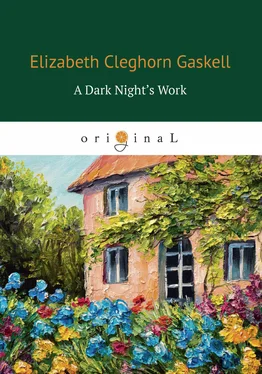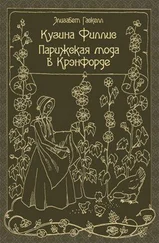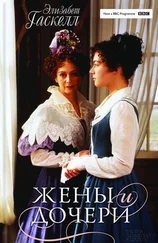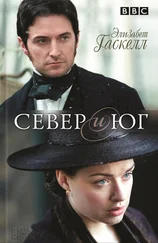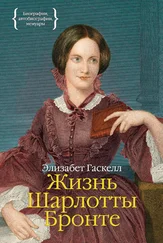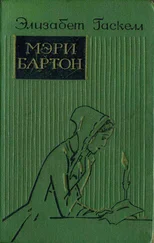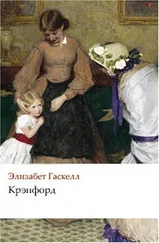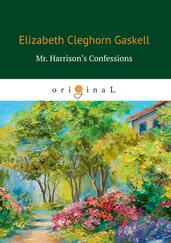Элизабет Гаскелл - A Dark Night’s Work
Здесь есть возможность читать онлайн «Элизабет Гаскелл - A Dark Night’s Work» — ознакомительный отрывок электронной книги совершенно бесплатно, а после прочтения отрывка купить полную версию. В некоторых случаях можно слушать аудио, скачать через торрент в формате fb2 и присутствует краткое содержание. Город: Москва, Год выпуска: 2018, ISBN: 2018, Жанр: Классический детектив, на английском языке. Описание произведения, (предисловие) а так же отзывы посетителей доступны на портале библиотеки ЛибКат.
- Название:A Dark Night’s Work
- Автор:
- Жанр:
- Год:2018
- Город:Москва
- ISBN:978-5-521-06834-0
- Рейтинг книги:3 / 5. Голосов: 1
-
Избранное:Добавить в избранное
- Отзывы:
-
Ваша оценка:
- 60
- 1
- 2
- 3
- 4
- 5
A Dark Night’s Work: краткое содержание, описание и аннотация
Предлагаем к чтению аннотацию, описание, краткое содержание или предисловие (зависит от того, что написал сам автор книги «A Dark Night’s Work»). Если вы не нашли необходимую информацию о книге — напишите в комментариях, мы постараемся отыскать её.
A Dark Night’s Work — читать онлайн ознакомительный отрывок
Ниже представлен текст книги, разбитый по страницам. Система сохранения места последней прочитанной страницы, позволяет с удобством читать онлайн бесплатно книгу «A Dark Night’s Work», без необходимости каждый раз заново искать на чём Вы остановились. Поставьте закладку, и сможете в любой момент перейти на страницу, на которой закончили чтение.
Интервал:
Закладка:
Elizabeth Cleghorn Gaskell
A Dark Night’s Work
© T8RUGRAM, 2018
© Original, 2018
Chapter I
In the county town of a certain shire there lived (about forty years ago) one Mr. Wilkins, a conveyancing attorney of considerable standing.
The certain shire was but a small county, and the principal town in it contained only about four thousand inhabitants; so in saying that Mr. Wilkins was the principal lawyer in Hamley, I say very little, unless I add that he transacted all the legal business of the gentry for twenty miles round. His grandfather had established the connection; his father had consolidated and strengthened it, and, indeed, by his wise and upright conduct, as well as by his professional skill, had obtained for himself the position of confidential friend to many of the surrounding families of distinction. He visited among them in a way which no mere lawyer had ever done before; dined at their tables – he alone, not accompanied by his wife, be it observed; rode to the meet occasionally as if by accident, although he was as well mounted as any squire among them, and was often persuaded (after a little coquetting about “professional engagements,” and “being wanted at the office”) to have a run with his clients; nay, once or twice he forgot his usual caution, was first in at the death, and rode home with the brush. But in general he knew his place; as his place was held to be in that aristocratic county, and in those days. Nor let be supposed that he was in any way a toadeater. He respected himself too much for that. He would give the most unpalatable advice, if need were; would counsel an unsparing reduction of expenditure to an extravagant man; would recommend such an abatement of family pride as paved the way for one or two happy marriages in some instances; nay, what was the most likely piece of conduct of all to give offence forty years ago, he would speak up for an unjustly-used tenant; and that with so much temperate and well-timed wisdom and good feeling, that he more than once gained his point. He had one son, Edward. This boy was the secret joy and pride of his father’s heart. For himself he was not in the least ambitious, but it did cost him a hard struggle to acknowledge that his own business was too lucrative, and brought in too large an income, to pass away into the hands of a stranger, as it would do if he indulged his ambition for his son by giving him a college education and making him into a barrister. This determination on the more prudent side of the argument took place while Edward was at Eton. The lad had, perhaps, the largest allowance of pocket-money of any boy at school; and he had always looked forward to going to Christ Church along with his fellows, the sons of the squires, his father’s employers. It was a severe mortification to him to find that his destiny was changed, and that he had to return to Hamley to be articled to his father, and to assume the hereditary subservient position to lads whom he had licked in the play-ground, and beaten at learning.
His father tried to compensate him for the disappointment by every indulgence which money could purchase. Edward’s horses were even finer than those of his father; his literary tastes were kept up and fostered, by his father’s permission to form an extensive library, for which purpose a noble room was added to Mr. Wilkins’s already extensive house in the suburbs of Hamley. And after his year of legal study in London his father sent him to make the grand tour, with something very like carte blanche as to expenditure, to judge from the packages which were sent home from various parts of the Continent.
At last he came home – came back to settle as his father’s partner at Hamley. He was a son to be proud of, and right down proud was old Mr. Wilkins of his handsome, accomplished, gentlemanly lad. For Edward was not one to be spoilt by the course of indulgence he had passed through; at least, if it had done him an injury, the effects were at present hidden from view. He had no vulgar vices; he was, indeed, rather too refined for the society he was likely to be thrown into, even supposing that society to consist of the highest of his father’s employers. He was well read, and an artist of no mean pretensions. Above all, “his heart was in the right place,” as his father used to observe. Nothing could exceed the deference he always showed to him. His mother had long been dead.
I do not know whether it was Edward’s own ambition or his proud father’s wishes that had led him to attend the Hamley assemblies. I should conjecture the latter, for Edward had of himself too much good taste to wish to intrude into any society. In the opinion of all the shire, no society had more reason to consider itself select than that which met at every full moon in the Hamley assembly-room, an excrescence built on to the principal inn in the town by the joint subscription of all the county families. Into those choice and mysterious precincts no towns person was ever allowed to enter; no professional man might set his foot therein; no infantry officer saw the interior of that ball, or that card-room. The old original subscribers would fain have had a man prove his sixteen quarterings before he might make his bow to the queen of the night; but the old original founders of the Hamley assemblies were dropping off; minuets had vanished with them, country dances had died away; quadrilles were in high vogue – nay, one or two of the high magnates of –shire were trying to introduce waltzing, as they had seen it in London, where it had come in with the visit of the allied sovereigns, when Edward Wilkins made his début on these boards. He had been at many splendid assemblies abroad, but still the little old ballroom attached to the George Inn in his native town was to him a place grander and more awful than the most magnificent saloons he had seen in Paris or Rome. He laughed at himself for this unreasonable feeling of awe; but there it was notwithstanding. He had been dining at the house of one of the lesser gentry, who was under considerable obligations to his father, and who was the parent of eight “muckle-mou’ed” daughters, so hardly likely to oppose much aristocratic resistance to the elder Mr. Wilkins’s clearly implied wish that Edward should be presented at the Hamley assembly-rooms. But many a squire glowered and looked black at the introduction of Wilkins the attorney’s son into the sacred precincts; and perhaps there would have been much more mortification than pleasure in this assembly to the young man, had it not been for an incident that occurred pretty late in the evening. The lord-lieutenant of the county usually came with a large party to the Hamley assemblies once in a season; and this night he was expected, and with him a fashionable duchess and her daughters. But time wore on, and they did not make their appearance. At last there was a rustling and a bustling, and in sailed the superb party. For a few minutes dancing was stopped; the earl led the duchess to a sofa; some of their acquaintances came up to speak to them; and then the quadrilles were finished in rather a flat manner. A country dance followed, in which none of the lord-lieutenant’s party joined; then there was a consultation, a request, an inspection of the dancers, a message to the orchestra, and the band struck up a waltz; the duchess’s daughters flew off to the music, and some more young ladies seemed ready to follow, but, alas! there was a lack of gentlemen acquainted with the new-fashioned dance. One of the stewards bethought him of young Wilkins, only just returned from the Continent. Edward was a beautiful dancer, and waltzed to admiration. For his next partner he had one of the Lady –s; for the duchess, to whom the – shire squires and their little county politics and contempts were alike unknown, saw no reason why her lovely Lady Sophy should not have a good partner, whatever his pedigree might be, and begged the stewards to introduce Mr. Wilkins to her. After this night his fortune was made with the young ladies of the Hamley assemblies. He was not unpopular with the mammas; but the heavy squires still looked at him askance, and the heirs (whom he had licked at Eton) called him an upstart behind his back.
Читать дальшеИнтервал:
Закладка:
Похожие книги на «A Dark Night’s Work»
Представляем Вашему вниманию похожие книги на «A Dark Night’s Work» списком для выбора. Мы отобрали схожую по названию и смыслу литературу в надежде предоставить читателям больше вариантов отыскать новые, интересные, ещё непрочитанные произведения.
Обсуждение, отзывы о книге «A Dark Night’s Work» и просто собственные мнения читателей. Оставьте ваши комментарии, напишите, что Вы думаете о произведении, его смысле или главных героях. Укажите что конкретно понравилось, а что нет, и почему Вы так считаете.
